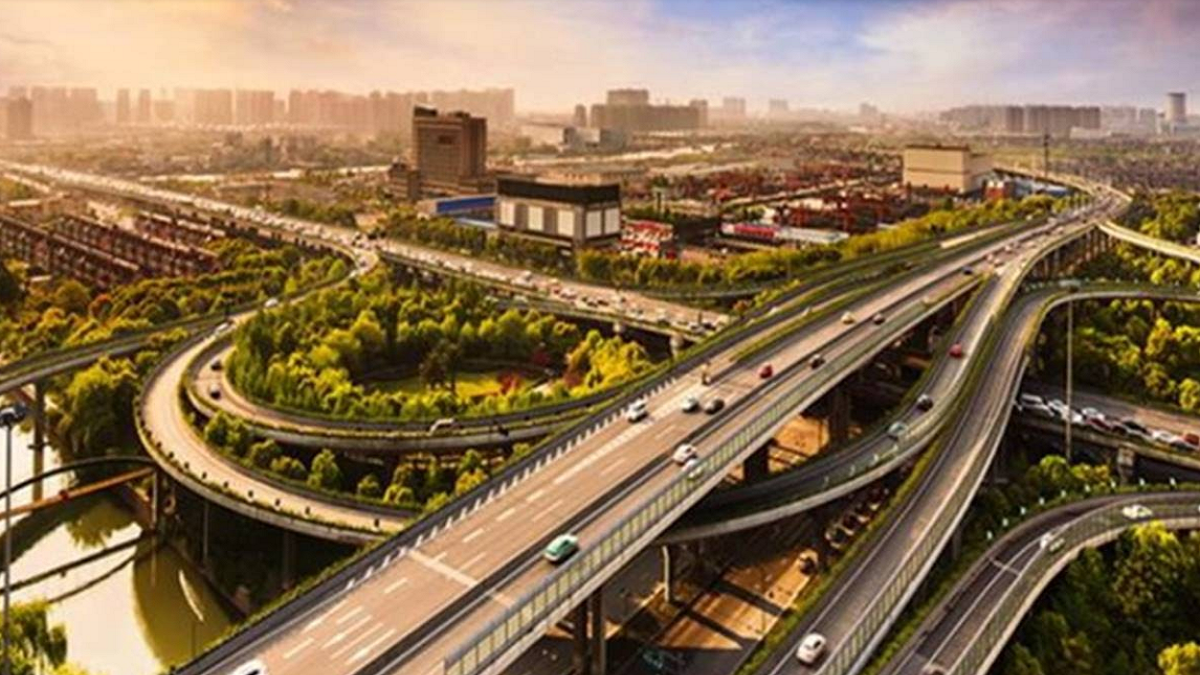The Delhi-Mumbai Industrial Corridor (DMIC) is a mega-infrastructure project covering an overall length of 1483 km between the political capital, Delhi, and the business capital, Mumbai. It is one of the largest infrastructure projects undertaken in India with the aim of developing a sustainable and efficient industrial belt across six states.
Objective:
The primary objective of the DMIC is to create an industrial corridor with world-class infrastructure that can cater to the growing demand for goods and services in India. The project aims to develop a number of smart cities, high-speed transportation systems, and logistics hubs along the corridor, which will help boost economic growth and create job opportunities.
Geographical Coverage:
The DMIC covers six states, namely Uttar Pradesh, Haryana, Rajasthan, Gujarat, Maharashtra, and Madhya Pradesh. The project is being implemented in phases, with the first phase covering 1,483 km from Dadri in Uttar Pradesh to Jawaharlal Nehru Port in Mumbai.
Project Components:
The DMIC project consists of several components, including:
1. Development of smart cities:
The DMIC aims to develop 24 smart cities along the corridor that will act as growth centers for the surrounding areas. These smart cities will be equipped with world-class infrastructure, including high-speed internet, 24/7 water supply, and efficient waste management systems.
2. Industrial clusters:
The project also aims to develop industrial clusters along the corridor to promote manufacturing and generate employment. The industrial clusters will be equipped with state-of-the-art facilities and infrastructure, including power and water supply, transportation, and logistics.
3. High-speed transportation systems:
The DMIC project also includes the development of high-speed transportation systems, including dedicated freight corridors and high-speed rail networks, to facilitate the movement of goods and people along the corridor.
4. Logistics hubs:
The project also aims to develop logistics hubs along the corridor to provide efficient and cost-effective logistics solutions to businesses.
Benefits:
The DMIC project is expected to bring several benefits to India, including:
1. Boost to economic growth:
The development of world-class infrastructure along the corridor is expected to attract significant investments and promote economic growth.
2. Job creation:
The project is expected to generate millions of jobs, both directly and indirectly, in industries such as manufacturing, logistics, and services.
3. Development of new cities:
The project will lead to the development of new cities along the corridor, which will provide affordable housing and improve the standard of living of people.
4. Efficient transportation:
The high-speed transportation systems developed under the project will help reduce transportation costs and improve the efficiency of the logistics industry.
Conclusion:
The DMIC project is a critical initiative by the Indian government to boost economic growth and create job opportunities. The project aims to develop world-class infrastructure along the corridor, including smart cities, industrial clusters, high-speed transportation systems, and logistics hubs. The project is expected to generate significant investments and promote economic growth, job creation, and the development of new cities along the corridor. The successful implementation of the DMIC project will not only benefit India but also provide a model for other countries to follow in their quest for sustainable and efficient industrial development.

